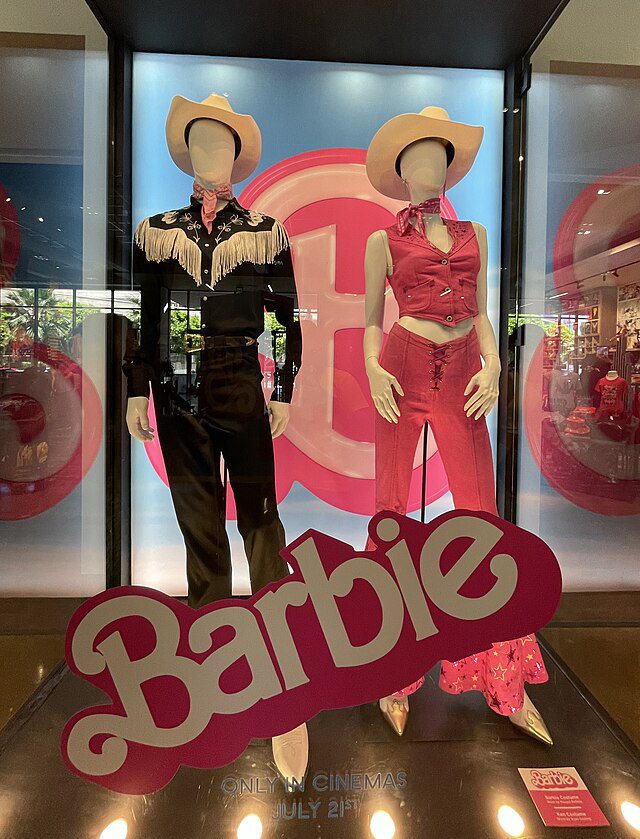
“Like and equal are not the same thing at all.” —Madeleine L’Engle, A Wrinkle in Time
Perhaps you’ve seen some of the reviews for the “Barbie” movie. They range everywhere from “This film was very deep, meaningful, educational and even life changing” to “the message is horrible and disintegrating – assisting another generation of lost, bitter, unfulfilled and confused boys and girls.” Clearly there is a lot of controversy surrounding the film.
While critics and audiences alike have praised “Barbie” wholeheartedly, there are certainly some people who take issue with the film. While I thoroughly enjoyed “Barbie,” I see why some people are having trouble with it.
It’s clearly a female power movie, and many argue that its feminist themes are heavy-handed and shallow, if not downright dangerous. I agree that the film is confusing and the themes are forceful. Admittedly, “a pink acid trip that feels like being slapped by lots of confusingly attractive people” is, in fact, an apt description of the viewing experience as X user TechnicallyRon said.
But is the film just a shockingly colorful, high budget and stereotypical “women are amazing and men are dumb” story? I think not. At its core, I argue, is a debate which highlights the importance of equality founded on shared humanity, not shared gender.
Let me first remind you that “Barbie” is largely satirical. While it is not unadulterated satire, its satirical qualities are not to be ignored. In Barbie Land, gender roles are satirically reversed; women have all the legal and cultural power, do basically all the jobs, and don’t really take their male counterpart, Ken, very seriously.
Women do hold positions of power in our real world, and women are often treated with dignity. Barbie Land is an idea of a matriarchal society made to directly counterbalance an idea of a patriarchal society. This idea of a patriarchal society may have been more accurate in some parts of history in some areas, but it is no longer the cultural norm in contemporary America.
Yes, our real-world society is still dealing with some pitfalls related to patriarchal attitudes, but this is only one of the many complicated issues in our world today.
Ken is introduced to the idea of patriarchy in a vulnerable state, a state of feeling unwanted and unimportant. We see this directly in how disappointed he is when Barbie doesn’t want to spend quality time with him, or simply in how lacking in function he is as a person; his main job in Barbie Land is “just beach.”
The narrator even openly admits that Ken’s day is only a good day if Barbie smiles at him. His discovery of the real world and the idea of patriarchy makes him feel important and needed but also gives him a function in his world.
He wants to take over because one gender being the dominant gender is the only experience he has. Accordingly, “Barbie” ends up showing us a satirical model of both a female-dominated world and a male-dominated world.
The way “Barbie” pits gender-dominated societies against each other shows us how dehumanizing such societies can be. The tension created by having women in charge of everything, but not acknowledging the rights of the men, actually hints at how unproductive – and toxic – radical feminism can be.
The equality of genders, at its core, is about equality of persons. Humanity and gender are clearly deeply intertwined. However, the experience of being human is shared by all of us, while gender experience is not. Being human is what makes women deserving of equality with men, and likewise men deserving of equality with women.
This is why stereotypical Barbie wants to become human at the end of the film. She wants to experience life not just as a woman, but as a human being.
The Barbies of Barbie Land are only women, and that is the extent of their identity, just as the Kens are only men. Barbie finds being human thrilling because it allows her to write her own story, it allows her to embrace the inevitable foibles of being a person and to help create a world in which she is heard and wanted as herself, not just as a gender or a stereotype.
Seen this way, the “Barbie” movie does a beautiful job of showing us the importance of treating all people as more than their gender identity, but as human beings, capable of both good and bad but deserving of love.
